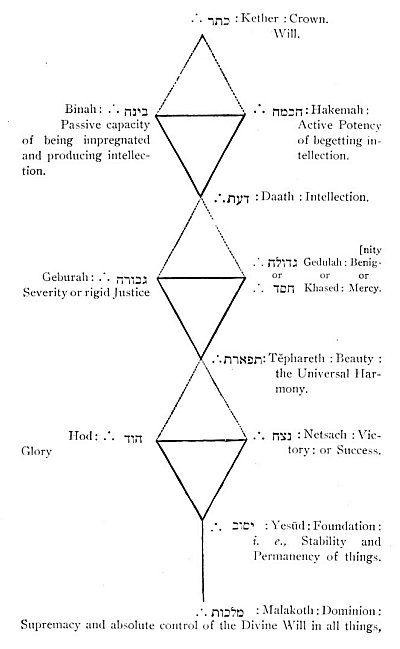It is the will that is free: though sometimes that will may be ineffectual. The power to do must not be confounded with the power to will. The former may be limited: the latter is sovereign. The external effects may be prevented: the resolution itself cannot. Of this sovereign power of the will we are conscious. We feel in ourselves, before it becomes determinate, the force which can determine itself in one way or another. At the same time when I will this or that, I am equally conscious that I can will the contrary. I am conscious that I am the master of my resolution: that I may check it, continue it, retake it. When the act has ceased, the consciousness of the power which produced if has not. That consciousness and the power remain, superior to all the manifestations of the power. Wherefore free-will is the essential and ever-subsisting attribute of the will itself.
At the same time that we judge that a free agent has done a good or a bad act, we form another judgment, as necessary as the first; that if he has done well, he deserves compensation; if ill, punishment. That judgment may be expressed in a manner more or less vivid, according as it is mingled with sentiments more or less ardent. Sometimes it will be a merely kind feeling toward a virtuous agent, and moderately hostile to a guilty one; sometimes enthusiasm or indignation. The judgment of merit and demerit is intimately connected with the judgment of good and evil. Merit is the natural right which we have to be rewarded; demerit the natural right which others have to punish us. But whether the reward is received, or the punishment undergone, or not, the merit or demerit equally subsists. Punishment and reward are
p. 724
the satisfaction of merit and demerit, but do not constitute them. Take away the former, and the latter continue. Take away the latter, and there are no longer real rewards or punishments. When a base man encompasses our merited honors, he has obtained but the mere appearance of a reward; a mere material advantage. The reward is essentially moral; and its value is independent of its form. One of those simple crowns of oak with which the early Romans rewarded heroism, was of more real value than all the wealth of the world, when it was the sign of the gratitude and admiration of a people. Reward accorded to merit is a debt; without merit it is an alms or a theft.
The Good is good in itself, and to be accomplished, whatever the consequences. The results of the Good cannot but be fortunate. Happiness, separated from the Good, is but a fact to which no moral idea is attached. As an effect of the Good, it enters into the moral order, completes and crowns it.
Virtue without happiness, and crime without misery, is a contradiction and disorder. If virtue suppose sacrifice (that is, suffering), eternal justice requires that sacrifice generously accepted and courageously borne, shall have for its reward the same happiness that was sacrificed: and it also requires that crime shall be punished with unhappiness, for the guilty happiness which it attempted to procure.
This law that attaches pleasure and sorrow to the good and the evil, is, in general, accomplished even here below. For order rules in the world; because the world lasts. Is that order sometimes disturbed? Are happiness and sorrow not always distributed in legitimate proportion to crime and virtue? The absolute judgment of the Good, the absolute judgment of obligation, the absolute judgment of merit and demerit, continue to subsist, inviolable and imprescriptible; and we cannot help but believe that He Who has implanted in us the sentiment and idea of order, cannot therein Himself be wanting; and that He will, sooner or later, re-establish the holy harmony of virtue and happiness, by means belonging to Himself.
The Judgment of the Good, the decision that such a thing is goad, and that such another is not,–this is the primitive fact, and reposes on itself. By its intimate resemblances to the judgment of the true and the beautiful, it shows us the secret affinities of morality, metaphysics, and esthetics. The good, so especially

Moe is the founder of GnosticWarrior.com. He is a father, husband, author, martial arts black belt, and an expert in Gnosticism, the occult, and esotericism.






